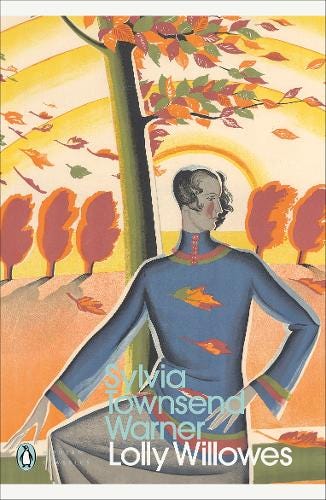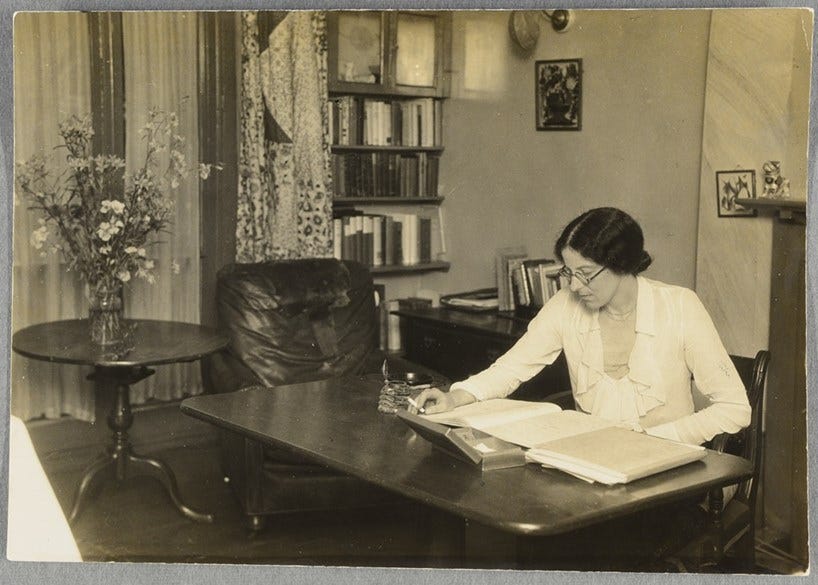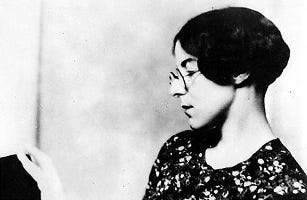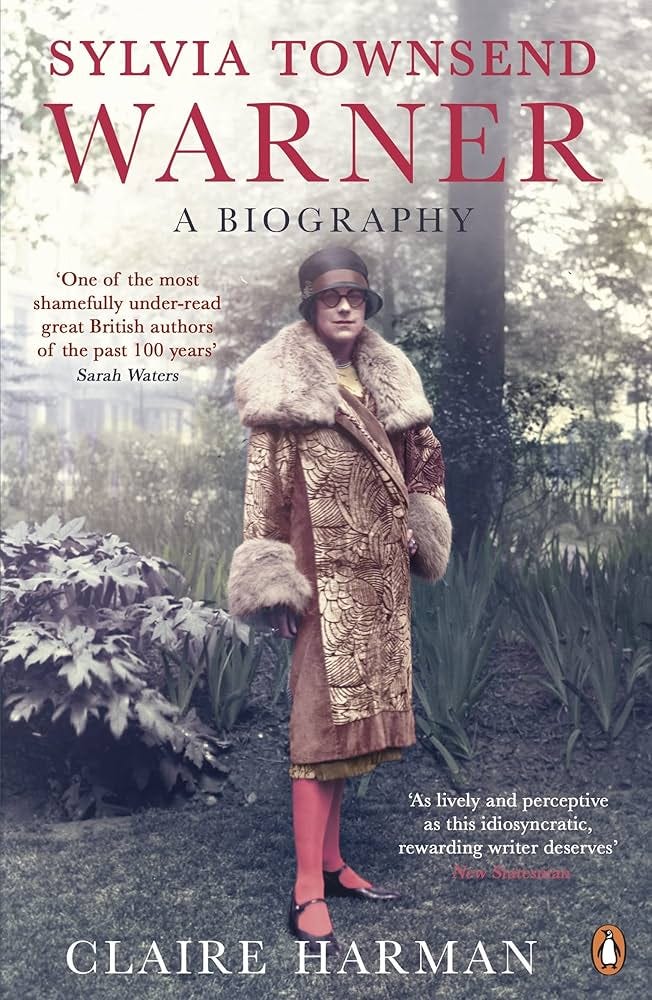Notes on Sylvia Townsend Warner
Getting to know this month’s book club author
This month’s True Stories Book Club pick is Lolly Willowes by Sylvia Towsend Warner.
I have to admit, I’d adored Lolly Willowes without ever looking into Sylvia Townsend Warner’s life before. I wish I had: just reading her Wikipedia page is a joy. She was homeschooled after being kicked out of kindergarten for mimicking the teachers; she would have studied music in Vienna had it not been for the outbreak of WWI; she served in the Red Cross during the Spanish Civil War. Not only was she an accomplished novelist (whose work, in my opinion, has yet to find the true extent of its audience); she was also a published musicologist, a translator of Proust, and a biographer of T. H. White.
Reading Lolly Willowes this time around, I was struck by the resonant meanings of Laura being a ‘spinster’. Historically, this term did not just describe a single woman, but also a woman who made her own money from spinning and therefore eluded patriarchal power. It was often a coded way of referring to lesbians - Judy Grahn reclaims the term in her 1983 book, The Queen of Wands. A spinster is a weaver of history and fate, a source of arcane wisdom, and a lover of women, persecuted and abused, but free in a way that married women could never be.
That was certainly true for Warner herself. In 1930, she moved to the village of Chaldon Herring in Dorset to live with the poet Valentine Ackland. Their relationship was a tempestuous one - Valentine indulged in several affairs - but the two women stayed together until Valentine died in 1969. In the Seventies, Sylvia began to gain a reputation as a significant lesbian writer, although it’s fair to say that she rarely addressed the topic directly.
Syvlia died in 1978, and her writing has often been out of print. However, last year it was announced that a statue will be erected in her honour in Dorchester. It is long overdue, although I wish they hadn’t made her look quite so homely. I like to picture her lying on top of her beloved Five Marys longbarrows near her cottage, reading poetry with Valentine.
Further reading about Sylvia Townsend Warner:
The literary circles in which she mixed in Dorset
A pilgrimage to Warner’s former home, Miss Green’s Cottage
(I went hunting to see if I could find it online, and I think this might be it, available to rent on AirB&B. If not, it’s very similar, and would be entirely suitable for some STW role play.)
Rural Hours: The Country Lives of Virginia Woolf, Sylvia Townsend Warner and Rosamond Lehmann by Harriet Baker was published in March, and explores the impact of home-making on these hugely significant women writers.
If you think a friend or loved one would enjoy The Clearing by Katherine May, gift subscriptions are available here | Website | Buy: Enchantment UK /US | Buy: Wintering UK / US | Buy: The Electricity of Every Living Thing UK / US
This newsletter contains affiliate links.







I’m really enjoying reading Lolly Willowes, all the more now for this insight into the life of its brilliant author, Sylvia Townsend Warner. Even though it’s not a huge book, it’s densely packed with concise language, words and phrases that I need to keep looking up! I’m just finishing part 1. Thanks for introducing me to Sylvia and Lolly, Katherine. Exactly what I need right now.
I have long loved Lolly Willowes and just read Rural Hours which is absolutely fascinating about all three writers and how living in the country shaped their lives and work. As someone who compulsively walks to loosen ideas it struck a chord! Plus lots of strangely compelling minutiae about housekeeping and the price of eggs during the war. I seem to remember that Miss Green wasn’t (sadly) the picturesque rural idyll but in fact a bit of an eyesore and was destroyed by a bomb at the end of a war but I could be wrong, I rather like the idea of some STW roleplay!